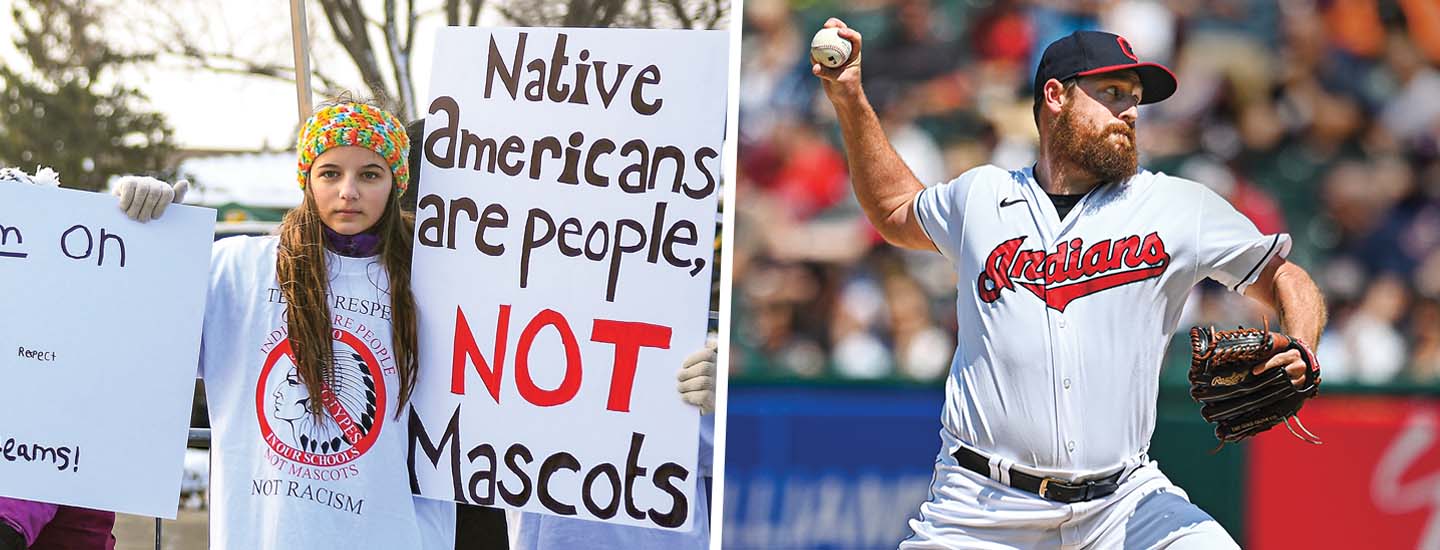For more than a century, the professional baseball team in Cleveland, Ohio, has been called the Indians. But that won’t be the case for much longer. The Major League Baseball (MLB) team is officially changing its name to the Cleveland Guardians before the 2022 season.
The Washington Football Team, based in the nation’s capital, is also set to announce a new name and logo early next year. That National Football League (NFL) team dropped the name Redskins in 2020.
The teams’ decisions to replace their Native-themed names is part of a trend. At least 43 U.S. schools have also removed such names or symbols this year, the National Congress of American Indians says.
“Folks believe that [team] mascots are who Native people are,” says Leah Salgado, a citizen of the Pascua Yaqui Tribe. She runs IllumiNative, a group that works to make sure all Indigenous people are accurately represented. “We would rather that folks see us as who we are as individuals,” she says.
For more than a century, a professional baseball team has been called the Indians. But that will not be true for much longer. The Major League Baseball (MLB) team is officially changing its name before the 2022 season. It will be called the Cleveland Guardians. The team is in Cleveland, Ohio.
The Washington Football Team is a National Football League (NFL) team based in the nation’s capital. It, too, is set to announce a new name and logo early next year. The team dropped the name Redskins in 2020.
The teams’ decisions to replace their Native-themed names is part of a trend. At least 43 U.S. schools have also removed such names or symbols this year. That is according to the National Congress of American Indians.
“Folks believe that [team] mascots are who Native people are,” says Leah Salgado. She is a citizen of the Pascua Yaqui Tribe. She runs IllumiNative. That group works to make sure all Indigenous people are accurately represented. “We would rather that folks see us as who we are as individuals,” Salgado says.

